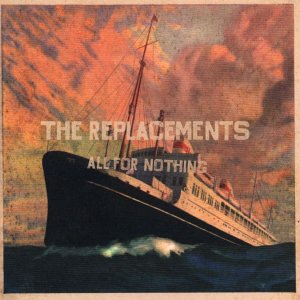The “hits” disc, a mix of rockers and sensitive ones, is fine, though everyone will have their own favorites that were left out. The second disc offers nuggets that would please even hardcore collectors. Some had already been B-sides, and others have since been appended to reissues of the albums themselves, but the selection and chronological sequencing make for a decent album’s worth of tunes. Highlights include: an earlier version of “Can’t Hardly Wait”; the brief but blatant “Beer For Breakfast”; vocal and writing debuts from Chris Mars (“All He Wants To Do Is Fish”) and Tommy Stinson (“Satellite”); “Date To Church” with Tom Waits; a sleazy take on “Cruella De Ville” from a Disney compilation; “Like A Rolling Pin”, a hoarse parody of a certain Bob Dylan song supposedly committed to posterity in the presence of the man himself; and their definitive crash through The Only Ones’ “Another Girl, Another Planet”. Stay tuned for the unlisted track at the end, a hilarious alternate version of “I Don’t Know”. (Also exciting for the mid-‘90s, these were enhanced CDs, with two music videos on each, accessible via the CD drive on computers. High tech!)
About a decade later, Rhino managed to grab the rights to the band’s Twin/Tone albums, and celebrated with a new compilation. Don't You Know Who I Think I Was? purported to offer “the best of the Replacements”, and the eight songs from the pre-Tim albums are excellent choices. (They even sound better.) All but six tracks from disc one of All For Nothing distill that period well, but the real cheese here are the two new recordings, the grand studio reunion of Paul, Tommy, and Chris (who didn’t play drums but sang, so they still count). Both “Message To The Boys” and “Pool & Dive” aren’t exactly lost classics, but drummer of choice Josh Freese, whom Paul had used on a solo album and Tommy knew from Guns N’ Roses, gets the wallop down to ensure the vibe is there.
The Replacements All For Nothing/Nothing For All (1997)—4
The Replacements Don't You Know Who I Think I Was?: The Best Of The Replacements (2006)—4



.jpg)



_cover_art.jpg)
